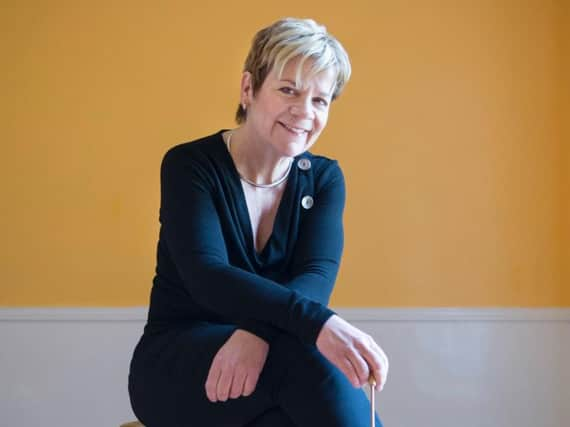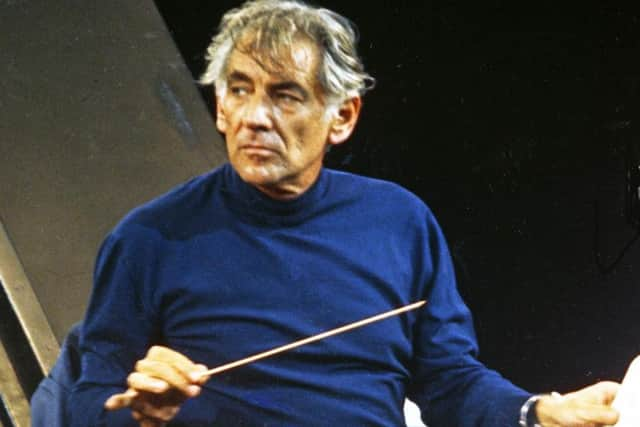Marin Alsop to conduct Leonard Bernstein's Chichester Psalms in Chichester Cathedral


Marin will be reunited with the Bournemouth Symphony Orchestra – for which she was principal conductor from 2002-09. The concert on Saturday, November 24 in Chichester Cathedral comes as the great highlight of the city’s Bernstein in Chichester Festival.
“I have never been to Chichester before,” says Marin. “It will be a great honour to recreate this piece in Chichester.
Advertisement
Hide AdAdvertisement
Hide Ad“Bernstein was really my inspiration to want to become a conductor. I saw him conduct when I was nine years old. It was at one of the young people’s concerts in New York. My dad took me to one of the concerts, and as soon as I saw him, I knew that I wanted to be a conductor. It was fantastic, and it was great eventually to become one of his students and to have the chance to travel with him.


“To have a hero is fairly unusual, but when you have a hero, it is unusual that your hero exceeds all your expectations, and he did. He was very generous and very giving and very animated. He was also a huge personality. I mean when he was in a room there was not much room for other people. He just became this charismatic focal point in the room, with which comes certain things. He was a person of tremendous energy and excess. Moderation was not a word in his vocabulary!
“From the first time I saw him, I then went to tons of New York Philharmonic concerts. My parents were both professional musicians. And then I met him a few times when I was in my 20s, but I didn’t become his student until 1987.”
And Marin is proud to say she still carries she lessons she learnt from him.
Advertisement
Hide AdAdvertisement
Hide Ad“He was very committed to the role of the conductor as the messenger of the composer. It is our first and foremost responsibility to get the narrative of the composer across to the musicians and to the audience. I was also lucky to witness a lot of non-musical things as to the kind of person that I came to think I wanted to become. He really stood up for the causes that he believed in. Whether I personally believed in them or not, I always found that really inspiring. He understood that he had to use his opportunities as a celebrity to try to make a difference in the world.”
As for the Chichester Psalms, commissioned by the then Dean of Chichester, Walter Hussey: “I think it is quintessential Bernstein. He takes the remit and changes the expectations, which is so much what Bernstein was about… the idea of this piece for a sacred place which is in Hebrew! That was already a shock. Also having the jazz elements, and the fact that the instrumentation is so unusual. I think Bernstein was trying to expand the blueprint so that it becomes inclusive, about tolerance and acceptance and about faith. Bernstein was always very, very interested in the concept of faith, whether it is individual faith or spiritual faith or religious faith.
"I think having the boy soprano in the second movement is a really symbolic gesture for Bernstein. For Bernstein, children and young people represented faith, and I think this faith really sums up Bernstein. It is a piece which is slightly outrageous and certainly unexpected and also very, very heartfelt and sincere. I don’t think he ever found an answer.
"But his work seems so eclectic. Bernstein didn’t like labels. He didn’t like barriers. He didn’t like boundaries…”
bernsteinchichester.uk.
Advertisement
Hide AdAdvertisement
Hide Ad